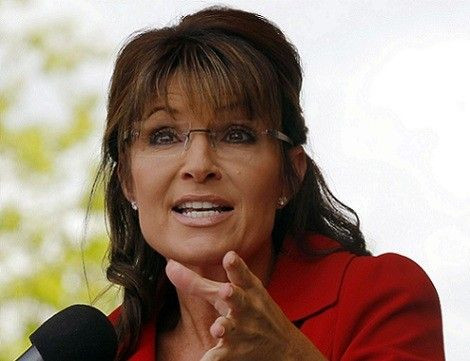Sarah Palin - Is It Now or Never Regarding a 2012 Presidential Run?
ANALYSIS

For former Alaska Gov. Sarah Palin, there's no time like the present to jump into the 2012 race for the Republican Party's nomination.
That was the view of James Carville, long-time Democratic strategist and former advisor to President Bill Clinton.
Carville argued that the decline in Michelle Bachmann's approval rating -- she's dropped to just a 5 percent preference rating in the latest Gallup Poll on Republican and Leaning-Republican Independents -- has created a void that Palin could fill.
In that Gallup Poll, Texas Gov. Rick Perry was the preference of 31 percent; former Massachusetts Gov. Mitt Romney received 24 percent, and U.S. Rep. Ron Paul, R-Texas, received 13 percent.
Bachmann's decline among Republican and Republican-leaning Independent voters seemingly does create a gap for Palin. Bachmann's base is a considerable portion of the conservative Tea Party-faction, and her apparent very-long-shot nomination chance might encourage many Tea Party members to shift allegiance to a conservative candidate with a better chance of securing the GOP nomination.
Still, it's important to point out that Perry and Romney also are trying to woo Tea Party members, in what amounts to a 2012 GOP nomination process that turned in to a contest of Can You Out-Conservative Me?
Will Palin Jump In?
Up to now, Palin has been strategically undecided regarding her 2012 intentions. The stance is electorally prudent in that the elongated 2012 election season means her non-entrance up until now has not cost her much, in terms of the potential to attract voters. If anything, the elongated 2012 election season will likely burn-out and eliminate early, lower-tier candidate announcers -- with Bachmann being a prime example, followed by Ron Paul.
The stance is also financially prudent in that it keeps Palin Inc. -- the marketing value of her brand -- at its highest possible dollar level.
That's because as soon as Gov. Palin says she's not running, the stock value or marketing value of Palin Inc. would drop substantially. Speaking fees, commentator royalties, other future royalties, and related perks are considerably higher for a public figure who may obtain a major political party's nomination for the U.S. presidency. Media coverage also would decrease, and that can affect book sales, etc.
Still, at this juncture, even though the 2012 GOP nomination race is still in its initial stages -- the primary season does not get started in earnest until January 2012 -- Bachmann's decline creates a Tea Party-faction void that probably will not present itself again in the current presidential election cycle. That's a strong constituent-based reason for Palin to jump in the race now.
Political/Public Policy Analysis: The calculation forwarded here is that former Gov. Palin will not run for the presidency in 2012. Palin is not qualified to be president -- the former governor has neither the foreign policy experience nor the knowledge of the Washington community to make a run at this juncture. Palin does have selected campaign skills, but campaign skills are not the same as governance skills. EVen so, the good news for Palin -- and for Palin fans -- is that she recognizes these current limitations. That, in and of itself, represents growth on her part, from governance and public policy standpoints.
However, Palin will not announce that she's not running, until she absolutely has to. To learn why, click here.
© Copyright IBTimes 2025. All rights reserved.





















